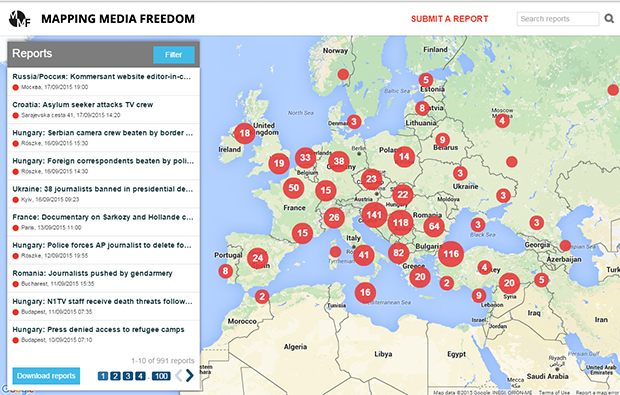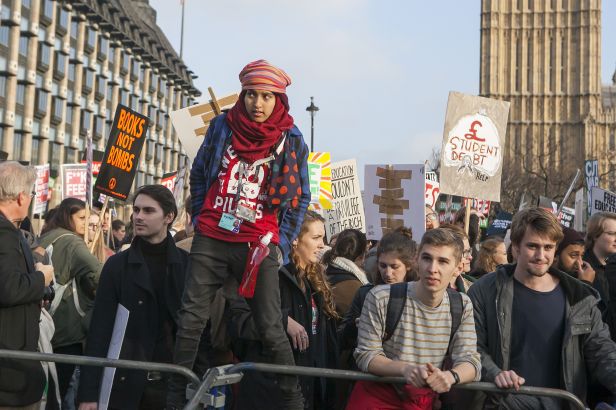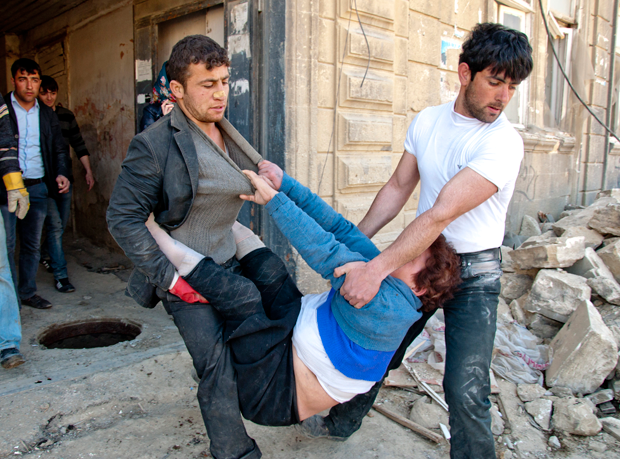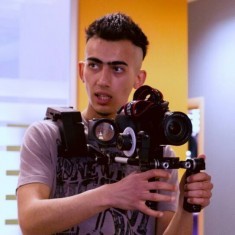21 Sep 2015 | Mapping Media Freedom, mobile, News and features, Serbia

Investigative journalist Ivan Ninic knew something was wrong when he saw the two young men reach down. “I saw they were getting two metal bars,” said Ninic, who is the latest victim of violence against journalists in Serbia. Two young men, in tracksuits and baseball caps, assaulted him on a Thursday evening in late August, in Serbia’s capital, Belgrade. “They attacked me and stuck me brutally,” he told UNS, a Serbian association for journalists. “I have a haematoma under my eye, bruises on the thigh bone and an injury to my shoulder.”
Just a week earlier, at a Jazz Festival in the southern city of Nis, local journalist Predrag Blagojevic was beaten by a police officer for — in the words of the officer — “acting smart”. “He grabbed me, bent my arm behind my back and repeated several times ‘Why are you acting smart?’ Then he hit me in the head with his hand. He hit me twice,” Blagojevic stated after the incident. Blagojevic had been approached by the officer and asked for his identity papers. Blagojevic had asked “why?” The police officer took him to his car and started beating him.
Media freedoms in Serbia are on the decline. The country has been cited in 93 verified violations against the media reported to Index on Censorship’s Mapping Media Freedom project. A recent report by Human Rights Watch (HRW), painted a picture of journalists in several western Balkan countries, working in hostile environments whilst facing threats and intimidation.
“It’s certainly not going forward,” HRW researcher Lydia Gall said in an interview with Index on Censorship. “What in fact should be showing progress, is rather deteriorating.”
Gall interviewed over 80 journalists in Serbia, Kosovo, Macedonia, Montenegro and Bosnia-Herzegovina. The stories she heard were shocking.
“These are all countries that are transitioning,” she said. “They’re undergoing democratic development in, one would hope, a positive direction. But when you look at the documentation I’ve collected you’ll see a worrying picture unravel.”
The report contains examples of threats, beatings, and even the murder of several journalists. It also claims there is political interference, pressure and a lack of action by the authorities to investigate and prosecute those responsible for crimes against the media.
In Serbia alone Human Rights Watch reported 28 cases of physical attacks, threats, and other types of intimidation against journalists between January and August 2014.
NUNS (the Independent Journalists’ Association of Serbia) has documented a total of 365 physical and verbal assaults, and attacks, in the period from 2008 to 2014. This may be the tip of the iceberg since, according to NUNS, many media workers don’t report attacks.
Between May 2014 and June 2015, Index on Censorship’s Mapping Media Freedom project has received 77 reports of violations against Serbian journalists and media workers.
Most of the targeted journalists investigate corruption and allegations of war crimes. Both Ivan Ninic and Predrag Blagojevic report on corruption on a regular basis. “These are not popular topics in the Balkans,” Lydia Gall said. “There are always people in power trying to get them not to write about them.”
Serbia has undergone incredible change over the past two decades. During the Federal Socialist Republic of Yugoslavia censorship was directly imposed by the state. Few forget the difficulties of reporting in Serbia during the darkest moments of the 1990s. Means and methods of pressure and censorship are very different nowadays.
“It’s not necessarily the state going after the journalist anymore,” Gall explained. “But it’s more the state neglecting to properly investigate crimes against journalists.”
“If it’s not physical interference or abuse, then it’s threats, or so-called friendly advice. In some cases journalists are being sued for civil libel and end up spending most of their time in courts instead of doing their work. It can be done in very subtle ways.”
This all contributes to a hostile environment for journalists to work in, the HRW report concludes. “You have to be a brave person to do this type of reporting in the Balkans,” said Gall.
Sometimes pressure on the media in Serbia is not even that subtle. Current Prime Minister Aleksandar Vucic, has been accused of being overly hostile against the media. He has publicly labeled Balkan Investigative Reporting Network (BIRN) foreign spies . The current government has also been accused by some journalists of involvement in several cyber attacks on critical online media portals, such as Pescanik.
“Improving media freedom is an important condition in Serbia’s negotiation process with the European Union for membership. But EU’s pressure on Serbia is too weak,” said Gall.
“They’re mainly looking at the legislative framework. On paper it looks great. The problem comes to light when you look on the ground. When you speak to journalists, who are living this reality every day.”
Meanwhile the Serbian journalist associations, NUNS and UNS, are trying to put pressure on the authorities to track down the attackers of Ivan Ninic.
Ninic is known for his investigations into corruption within high levels of government. He founded the Center for the Rule of Law, an NGO, and is planning to launch a website to publish investigative reports.
He believes the attack is a warning: “I expect the police will find and punish not only the attackers, but also the masterminds, so that I know who is sending me this message,” he said in a statement.
Mapping Media Freedom
Click on the bubbles to view reports or double-click to zoom in on specific regions. The full site can be accessed at https://mappingmediafreedom.org/
|
This article was published on 16 September 2015 at indexoncensorship.org
21 Sep 2015 | India, Lebanon, Malaysia, mobile, News and features, United Kingdom

Elena Rostunova / Shutterstock.com
Beirut is currently witnessing a wave of protests triggered by a rubbish disposal crisis and, lacking a legal framework, the authorities are struggling to cope. The protest — dubbed You Stink by many, including former Index on Censorship Freedom of Expression Awards nominee Lucien Bourjeily — comes as waste has been allowed to build up on the streets of the Lebanese capital. You Stink has very quickly morphed into a more general protest against the way public services in Lebanon are run and corruption levels within a weak government that has been without a president since May 2014.
Thousands of protesters have taken to the streets and social media channels to voice their frustration while the Lebanese authorities have struggled to respond. One short-term solution was to build a wall between the prime minister’s office and the streets below.
Lacking a legal framework for dealing with the protest has left the Lebanese authorities alternating between ignoring the rallies and violently cracking down but neither strategy has made an impact on demonstrations that began in July. Riot police were recently drafted in to clear an occupation at the office of Lebanon’s environment minister Mohammad Al Mashnouq. In that incident, Bourjeily was hospitalised with an injured arm after police cleared the sit-in.
A report by Freedom House in 2013 found that “Freedom of assembly has been generally unrestricted (in Lebanon) in the past, as hundreds of thousands of Lebanese have rallied in favour of or in opposition to the government.” There is no precedent to arrest or disperse large numbers of people protesting against a government or rule of law. Though police have been using force to disperse largely peaceful protests, there is no fear of arrest so the movement continues.
The benign legal framework is coupled with Lebanon’s open media freedom environment. The country is one of the highest-ranked Middle Eastern states for press freedom. Citizens can also vent their frustrations via the internet and social media with relative ease. Much of the activity that has surrounded the You Stink protests has been spawned online.
The chaos ensuing in Beirut contrasts with the largely peaceful mass demonstrations against the Malaysian prime minister Najib Razak, who has been tainted by accusations of corruption.
The turnout for the protests has been large despite amendments to the country’s colonial-era sedition act made in April 2015 but the threat of arrest was very real as the rally organisers of the protest Bersih 3.0 (Malay for “clean”) recently found out. Websites spreading word of the demonstrations were banned and when groups of protesters attempted to break through the barriers they were fired at with tear gas and beaten and arrested by police, often under sedition laws.
The penalties for the vaguely worded “seditious activities” have recently been increased to 20 years, changes described by the UN and Razak’s opposition as a “black day” for freedom of expression. The sedition law was also used as a legal tool to investigate up to 50 protesters in the Taman Medan region peacefully protesting against the affixation of a cross on a local church’s premises. Initially, the inspector general of police in the region stated that the demonstrators would be cleared of any wrongdoing but this was vetoed by the Home Minister and Razak, who urged police to investigate the protest under sedition and said action could be taken under the law. The case was classified as sedition and serves as an example of a growing climate of fear being emphasised by its use in Malaysia.
Another colonial-era sedition law has been used in India to target groups of protesters on a number of occasions, including 2012 demonstrations against the building of a power station in Tamil Nadu. When told they couldn’t march, thousands of demonstrators stood still to register their concerns about the health impact that the plant would have. A report by local activists after the protest found that at least 3,500 of the participants were being investigated for sedition. South Asia Human Rights Watch denounced the charges and urged the Indian parliament to repeal the law.
In an even stranger case, a charge of sedition was issued in March 2014 against a crowd of Indian students cheering for Pakistan in a one-day cricket match between India and Pakistan. The charges were eventually dropped after outrage from Jammu and Kashmir Chief Minister Omar Abdullah.
Western cities like London may not use sedition as a tool to halt protest but the authorities still find dealing with protest far easier when they are backed by a legal framework. The Public Order Act 1986 outlines the law relating to protest in the UK and makes a firm distinction between static assembly and a moving march. In order to hold a march, protesters are required to submit a permit to a police station at least six days before it takes place and the police can then impose sanctions. In this way, the authorities are able to curtail attempts by demonstrators to protest spontaneously en masse.
Even a static assembly can be sanctioned if the police believe it will cause serious public disorder, serious damage or intimidation. This was the case with the neo-Nazi protest moved from Golders Green to Whitehall in July.
An added piece of legislation, The Police Reform and Social Responsibility Act, came into force in 2011, mainly as a response to the actions of Brian Haw whose tent demonstration outside Whitehall lasted from 2001 until his death in 2011. This new act prohibits protesters from certain activities outside Parliament, preventing protesters from, among other things, operating amplified noise equipment and erecting tents or “sleeping structures”. The wording here is important. In the midst of protests resembling those currently taking place in Beirut, when British protesters “occupied” Whitehall in 2014, the phrase “sleeping structures” was used to cover all sorts of paraphernalia, with the images of protesters being forcibly removed from lying on tarpaulins and sleeping bags being etched into the minds of those observing the British press in the following few weeks. It even prompted a global hashtag, #tarpaulinrevolution.
The new act is coupled with regulations under City of Westminster bylaws stating that protesters must gain written permission before they protest in London’s Parliament Square. The UN General Assembly’s special rapporteur voiced grave concerns about these by-laws and restrictions in a report in 2013.
Protests such as those in London, Malaysia and Tamil Nadu can pictorially resemble those happening in Beirut but are far less of an issue for the authorities due to them being able to rely on a legal framework to disrupt them. In Malaysia, fear of sedition looms large over the heads of even the most peaceful of demonstrators.
For the time being, protest against the interim government in Beirut rumbles on, unabated.
18 Sep 2015 | Azerbaijan, Azerbaijan News, News and features

Shamsi Badalbayli Street, Baku, 2 April 2012. A resident is forcibly evicted from the area where the Winter Garden will be constructed. Approximately 300 complaints have been sent to the European Court of Human Rights related to forced evictions from this area. This photograph by Ahmed Mukhtar appeared in the autumn 2013 issue of Index on Censorship magazine and was featured at a 2013 exhibition at the ICA.
Freelance journalist Ahmed Mukhtar, a contributor to Index on Censorship magazine, was detained at 7pm Friday 18 September in Azerbaijan, according to Contact.az.
Mukhtar’s brother, Elnur, works with Berlin-based Meydan.TV. His detention is the latest in a string of arrests of family members of contributors to Meydan.tv
“Ahmed Mukhtar is an extremely talented and courageous Azerbaijani photojournalist, whom I’ve had the pleasure of collaborating with through the Art for Democracy campaign. He is one of very few left in the country willing to capture risky subject matter like human rights abuses. His detention comes just one day after the detention of another young journalist, Abbas Shirin, also known for his photography, including his coverage of the recent trials of human rights defenders Leyla and Arif Yunus and journalist Khadija Ismayilova. Now it seems that even photographing people the Azerbaijani authorities have previously targeted is enough to land someone in jail”, said Rebecca Vincent, coordinator of the Sport for Rights campaign and former advocacy director of Art for Democracy, a creative campaign that ceased operations in August 2014 when authorities arrested its coordinator, human rights defender Rasul Jafarov.
Mukhtar was later released, according to a tweet from Vincent.
Over the weekend, founder of Meydan.TV Emin Milli reported that three more journalists were detained and questioned before being released.
On Thursday 17 September, Meydan.tv contributor Shirin Abbasov was sentenced to 30 days in jail “for disobeying the police after nearly thirty hours in custody,” according to Meydan.tv.
The Sport for Rights Coalition condemned Azerbaijan’s moves against journalists and independent media.
This article was updated on 21 September.
18 Sep 2015 | Azerbaijan, Azerbaijan Statements, Campaigns, mobile, Statements

Shirin Abbasov (Photo: Meydan.tv)
The Sport for Rights Coalition condemns the Azerbaijani authorities’ extensive pressure against the staff of independent online television station Meydan TV, as part of a wider unprecedented crackdown on free expression and independent media. Following months of increased pressure in the aftermath of the European Games and the run-up to the 1 November parliamentary elections, on 17 September, Meydan TV reporter Shirin Abbasov was sentenced to 30 days of administrative detention for “disobeying police”. On 18 September, authorities searched the flat of another Meydan TV reporter, Javid Abdullayev, in connection with the case against Abbasov, seizing computers and cameras – indicating more serious charges might be forthcoming.
Abbasov, a 19 year-old freelance journalist and Meydan TV contributor, went missing on his way to university early the afternoon of 16 September, and his whereabouts were unknown for nearly 30 hours. Authorities eventually disclosed that Abbasov was being held at the Ministry of Internal Affairs’ notorious Department to Combat Organised Crime. Abbasov has so far been prevented from seeing his lawyer, who fears that Abbasov may be under pressure to sign a false confession.
“The arrest of Shirin Abbasov is yet another act by the authorities aimed at silencing independent voices in Azerbaijan”, said IMS Executive Director Jesper Højberg. “Locking up government critics and stepping up pressure on the country’s few remaining independent media outlets and NGOs has had disastrous consequences for Azerbaijan’s international relations, and certainly does not bode well for the upcoming parliamentary elections. The Azerbaijani government must take action now to put a stop to this downward spiral”.
Prior to his arrest, Abbasov was one of four Meydan TV staff prevented from leaving Azerbaijan after the conclusion of the European Games in June, told they were placed on a “blacklist” for unclear reasons. More recently, he covered the trials of human rights defenders Leyla and Arif Yunus, and journalist Khadija Ismayilova, capturing some of the only images of the political prisoners that were used in the press. Abbasov is also a popular video blogger, whose Facebook posts critical of the government have drawn widespread attention. He was one of six Meydan TV staff previously questioned over Meydan TV’s coverage of protests in the city of Mingechevir calling for the resignation of the local police chief following the 20 August death of a man in policy custody.
Also on 16 September, another young freelance journalist and Meydan TV contributor, Aytaj Ahmadova, was detained along with a friend and questioned for five hours by employees of the same Department to Combat Organised Crime, before being released. She reported that similarly to her colleagues, questions were focused on the Mingechevir protests, as well as Meydan TV’s activities, and its management and salary structure. Ahmadova’s parents have reportedly been fired from their jobs and threatened with arrest.
“The extensive questioning of Meydan TV’s staff in connection with the Mingechevir protests bears similar hallmarks to the cases built against journalist Tofig Yagublu and opposition leader Ilgar Mammadov – both of whom remain imprisoned on spurious charges connected with the 2013 protests in Ismayilli”, stated Thomas Hughes, ARTICLE 19’s Executive Director. “The Azerbaijani government should immediately cease its persecution of journalists working with Meydan TV, as well as any others legitimately expressing critical or independent viewpoints. Azerbaijan’s current actions, following a year of persistent crackdown down on freedom of expression, are in direct violation of its international obligations”.
In June, Meydan TV Director Emin Milli reported that he had received a threat from the Azerbaijani Minister of Youth and Sport, Azad Rahimov, in connection with Meydan TV’s critical reporting on the European Games. In July, 23 of his relatives signed a letter to Azerbaijani President Aliyev stating that they did not support Milli’s “anti-Azerbaijani policy” and had excluded him from the family for his “betrayal of Azerbaijan”. Meydan TV editor and popular writer Gunel Movlud also reported that her relatives have faced pressure in connection with her work; so far at least four have been fired from their jobs.
The growing pressure against the staff of Meydan TV takes place against a broader unprecedented crackdown on free expression and the independent media. In addition to Abbasov, there are eight journalists behind bars in Azerbaijan, as well as six human rights defenders who are strong free expression advocates, along with dozens of other political prisoners, many of whom were targeted for expressing critical opinions.
For more than a year, the staff of media freedom NGO the Institute for Reporters’ Freedom and Safety (IRFS) – where detained journalist Shirin Abbasov worked prior to Meydan TV – has faced tremendous pressure, culminating with the murder of IRFS Chairman Rasim Aliyev, who died in hospital on 9 August after being severely beaten the day before. The attack on Aliyev took place one year from the date authorities had raided and closed the office of IRFS and its online TV project, Obyektiv TV, which were forced to cease operations.
That same day, 8 August 2014, IRFS Director Emin Huseynov was forced into hiding, and was soon after granted refuge at the Swiss Embassy in Baku, where he remained for 10 months until he was finally allowed out of the country, but stripped of his Azerbaijani citizenship. Huseynov remains in exile abroad as a stateless person. His brother Mehman Huseynov, a well-known photojournalist and blogger, was detained earlier this month when he tried to obtain a replacement ID card as authorities had seized his in connection with a politically motivated criminal case against him from 2012. He has been prevented from leaving the country since June 2013. In January this year, IRFS deputy head Gunay Ismayilova was attacked outside her apartment in Baku.
Other independent media that have been facing extensive pressure include Radio Free Europe/Radio Liberty (RFE/RL)’s Baku bureau, which was raided and closed by authorities in December 2014, shortly after the arrest of its former bureau chief and prominent investigative journalist Khadija Ismayilova, who was sentenced on 1 September to 7.5 years in prison on spurious charges. Opposition Azadliq newspaper once again teeters on the brink of closure after years of excessive fines from defamation cases filed by public officials and their supporters, and other financial pressures. ‘Azerbaycan saati’ (Azerbaijan Hour), an opposition-minded online television station, has also faced extensive pressure, including the arrest of its presenter Seymur Hezi, who is currently serving a five-year prison sentence on spurious charges.
The Sport for Rights coalition condemns these acts aimed at silencing independent voices in Azerbaijan and punishing those who were critical in the run-up to the European Games. Sport for Rights believes that the pressure against Meydan TV is directly connected to its critical coverage of the European Games. Sport for Rights also notes that Meydan TV and the other organisations and individuals being targeted have all played an important role in exposing corruption and human rights abuses — which has become downright dangerous in Azerbaijan.
Sport for Rights calls for the immediate and unconditional release of Shirin Abbasov, as well as the other jailed journalists and human rights defenders in Azerbaijan. Sport for Rights also calls for the Azerbaijani authorities to put a stop to all acts of persecution of Meydan TV’s staff and other journalists and human rights defenders, and to take urgent steps to address the broader human rights crisis in the country ahead of the 1 November parliamentary elections.
Supporting organisations:
ARTICLE 19
Civil Rights Defenders
Committee to Protect Journalists
Human Rights House Foundation (HRHF)
Index on Censorship
International Federation for Human Rights (FIDH), in the framework of the
Observatory for the Protection of Human Rights Defenders
International Media Support (IMS)
International Partnership for Human Rights (IPHR)
Norwegian Helsinki Committee
PEN American Center
People in Need
Platform
Polish Green Network
World Organisation Against Torture (OMCT), in the framework of the
Observatory for the Protection of Human Rights Defenders
YouAid Foundation
[smartslider2 slider=”35″]




